Pasilla suiza is a mild Mexican chili pepper (1,000-2,500 SHU) with an earthy, smoky flavor and hints of dried fruit and cocoa. It's the dried form of the chilaca pepper and is commonly used in mole sauces, enchiladas, and stews. Unlike its hotter cousin pasilla negro, pasilla suiza offers a refined, approachable heat perfect for beginners and experienced cooks alike.
Quick Facts About Pasilla Suiza
- Heat Level: 1,000-2,500 Scoville Heat Units (SHU) - mild
- Flavor Profile: Earthy, smoky, with hints of dried fruit and cocoa
- Origin: Mexico (dried form of chilaca pepper)
- Common Uses: Mole sauces, enchiladas, stews, soups, marinades
- Best Substitutes: Ancho peppers (closest match), Guajillo peppers (for moderate heat)
What Is Pasilla Suiza?
Pasilla suiza is the dried form of the chilaca pepper, a variety native to Mexico. The name "suiza" (Swiss in Spanish) refers to its mild heat level compared to other pasilla varieties. Unlike the hotter pasilla negro, pasilla suiza offers a smooth, refined flavor profile with earthy, smoky notes and hints of dried fruit and cocoa.
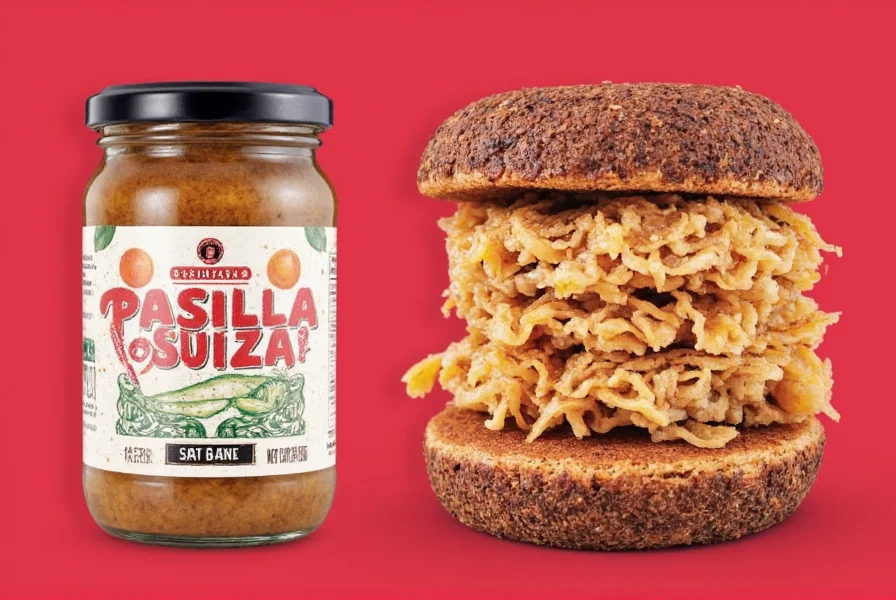
Flavor Profile & Heat Level
Pasilla suiza is known for its approachable heat and complex flavor profile. Here's how it compares to other popular chilies:
| Characteristic | Description |
|---|---|
| Heat Level (Scoville Units) | 1,000 – 2,500 SHU |
| Taste Notes | Earthy, smoky, with hints of dried fruit and cocoa |
| Best Used In | Sauces, moles, stews, soups, and marinades |
| Chili | Heat Level | Main Flavor Notes | Common Uses |
|---|---|---|---|
| Pasilla Suiza | Mild | Smoky, earthy, fruity | Moles, sauces, slow-cooked dishes |
| Ancho | Mild to Moderate | Fruity, raisin-like | Enchilada sauces, tamales |
| Guajillo | Moderate | Berry, green tea | Salsas, marinades |
| Pasilla Negro | Moderate to Hot | Grassy, raisin-like | Mole sauces, soups |
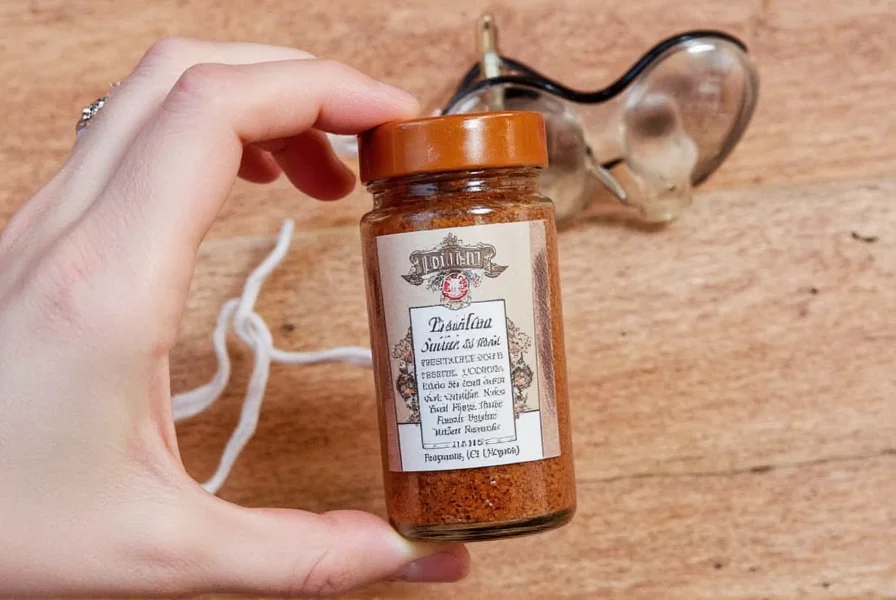
Cooking with Pasilla Suiza: Tips & Tricks
Cooking with pasilla suiza can elevate your meals from good to gourmet. Here are some tried-and-true ways to make the most of this versatile pepper:
- Rinse Before Use: Dried chilies can collect dust during storage. Give them a quick rinse before using.
- Rehydrate First: Soak in hot water for 20–30 minutes until soft. Drain well before blending.
- Blend into Sauces: Combine rehydrated pasilla suiza with garlic, onion, tomatoes, and spices for an instant rich sauce.
- Add Depth to Mole: It's one of the classic base chilies used in mole poblano. Pair it with almonds, sesame seeds, and chocolate for a complex flavor.
- Use in Slow-Cooked Dishes: Add to braised meats, beans, or stews for a deep, lingering warmth.
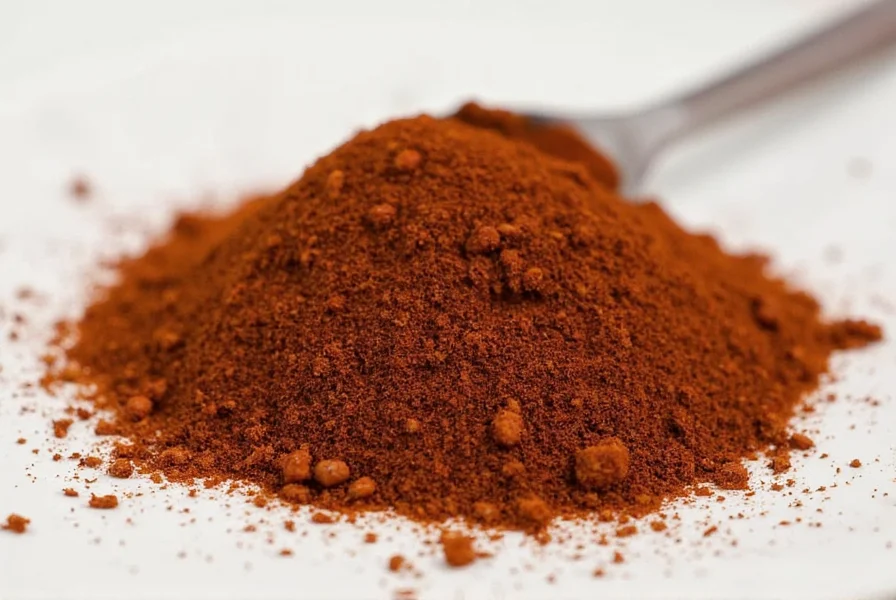
Quick Recipe Idea: Smoky Chicken Enchiladas
- Soak 4 pasilla suiza chilies in boiling water for 20 minutes.
- Blitz into a paste with garlic, cumin, and a bit of chicken broth.
- Spread over shredded cooked chicken.
- Roll into tortillas, top with cheese, and bake until bubbly.
Buying Guide: How to Choose the Best Pasilla Suiza
When shopping for pasilla suiza, not all chilies are created equal. Here's how to spot quality ones, whether you're at a local market or browsing online stores:
Physical Characteristics
- Color: Dark brown to blackish, with a slight reddish undertone when held to light.
- Texture: Dry but pliable, not brittle or overly leathery.
- Size: Long and narrow, usually around 6–8 inches.
- Smell: Should have a rich, smoky aroma — no moldy or stale smells.
Where to Buy
- Local Latin Markets: Often fresher and less expensive than supermarkets.
- Specialty Spice Stores: Offer organic or heirloom varieties.
- Online Retailers: Look for vacuum-sealed packages for longer shelf life.
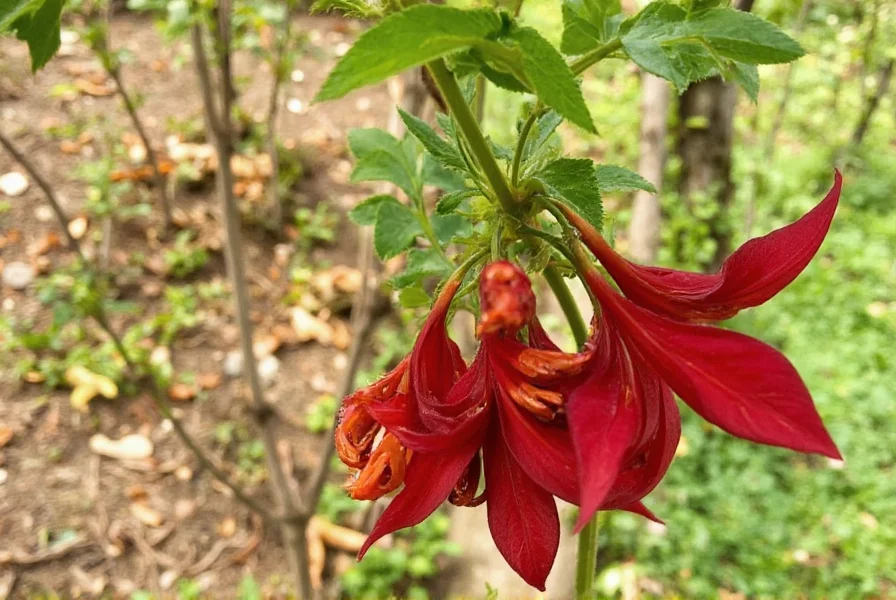
Recommended Brands
| Brand | Features | Pros | Cons | Best For |
|---|---|---|---|---|
| Dona Maria | Vacuum sealed, organic options available | Great flavor, consistent size and color | A bit pricier than generic brands | Home chefs who want quality ingredients |
| Goya Foods | Widely available, budget-friendly | Inexpensive and accessible | May vary in freshness depending on store | Casual cooking and beginners |
| La Morena | Authentic Mexican sourced product | Rich, smoky flavor | Packaging may not be resealable | Mexican food enthusiasts |
Storage & Shelf Life
Dried chilies like pasilla suiza don't last forever. Proper storage is key to preserving their flavor and potency:
- Whole Chilies: Store in an airtight container in a cool, dark place. They'll keep for up to 1 year.
- Ground Chilies: Ground versions lose flavor faster; use within 6 months.
- Freezing: For longer shelf life, freeze whole dried chilies in a ziplock bag. They can last up to 2 years this way.
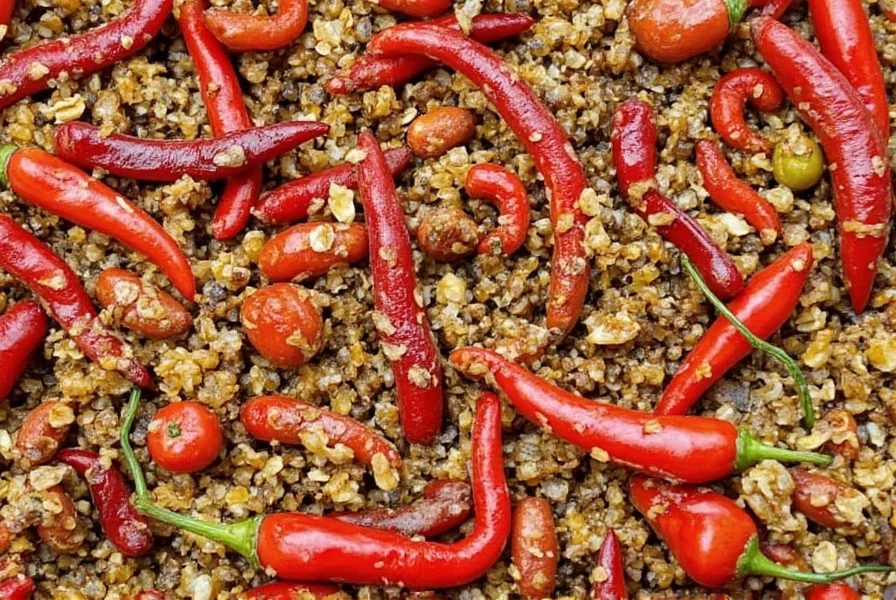
Frequently Asked Questions (FAQs)
Is pasilla suiza the same as pasilla negro?
No. Pasilla suiza is significantly milder (1,000-2,500 SHU) and has a smoother, more refined flavor profile compared to pasilla negro, which tends to be hotter (2,500-4,000 SHU) and has more grassy notes. Pasilla suiza offers earthy, smoky flavors with hints of dried fruit and cocoa.
How does pasilla suiza differ from regular pasilla peppers?
While both come from the same chilaca pepper family, pasilla suiza is specifically known for its milder heat level and more refined flavor profile. Regular pasilla (often referring to pasilla negro) tends to be spicier with more pronounced grassy notes, while pasilla suiza delivers a smoother, fruitier experience with subtle smokiness. The "suiza" designation indicates its Swiss-like mildness compared to other pasilla varieties.
Can I substitute pasilla suiza with another chili?
Yes! Ancho peppers are the closest substitute in terms of mild heat level, though they have more pronounced raisin-like notes. Guajillo peppers work well for moderate heat but offer berry and green tea flavors instead of the earthy smokiness. For the most authentic substitution, try combining ancho (for mild heat) with a small amount of chipotle (for smokiness). Remember that substitutions will alter the flavor profile, so you may need to adjust other seasonings in your recipe.
What does 'suiza' mean in pasilla suiza?
'Suiza' means "Swiss" in Spanish, referring specifically to the pepper's mildness compared to other pasilla varieties. This nomenclature highlights how the heat level is more approachable—similar to how Swiss cheese is often milder than other cheese varieties. It's a marketing term that helps distinguish this milder variety in the marketplace.
Is pasilla suiza the same as chilaca pepper?
Pasilla suiza is the dried form of the chilaca pepper. When fresh, it's called chilaca; once dried, it becomes pasilla suiza. The drying process concentrates the flavors and develops the characteristic smokiness. This is similar to how the poblano pepper becomes ancho when dried.
What is the best way to rehydrate pasilla suiza for cooking?
For optimal flavor extraction, place the dried peppers in a bowl and cover with just-boiled water. Let them soak for 20-30 minutes until pliable but not mushy. For enhanced flavor, add a clove of garlic, a pinch of cumin, or a bay leaf to the soaking water. Always remove the stems and seeds before soaking unless you want maximum heat. Drain well before using in recipes, reserving the soaking liquid to add depth to sauces.
Can I grow my own pasilla suiza peppers?
Absolutely! Start chilaca pepper seeds indoors 8-10 weeks before the last expected frost. Transplant outdoors when soil temperatures reach at least 70°F (21°C). The plants need full sun and well-draining soil. Harvest when the peppers turn from dark green to brownish-black (about 70-80 days). To make pasilla suiza, allow the mature peppers to dry completely on the plant or bring them indoors to dry in a warm, well-ventilated area until brittle.
Is pasilla suiza healthy?
Yes! Like most chilies, it's low in calories and packed with nutrients. Pasilla suiza is particularly high in vitamins A and C, providing about 30% of your daily vitamin C needs per serving. It contains capsaicin (though less than hotter peppers), which has been shown to boost metabolism, reduce inflammation, and provide pain relief. The drying process concentrates certain antioxidants, making dried chilies like pasilla suiza excellent sources of these beneficial compounds.
Conclusion
Pasilla suiza may not be a household name yet, but it's definitely a rising star in the spice world. With its smooth flavor, moderate heat, and incredible versatility, it deserves a spot in every serious cook's pantry. Whether you're simmering a batch of mole, spicing up your enchiladas, or experimenting with homemade sauces, pasilla suiza adds that subtle complexity that takes your dish from ordinary to unforgettable.
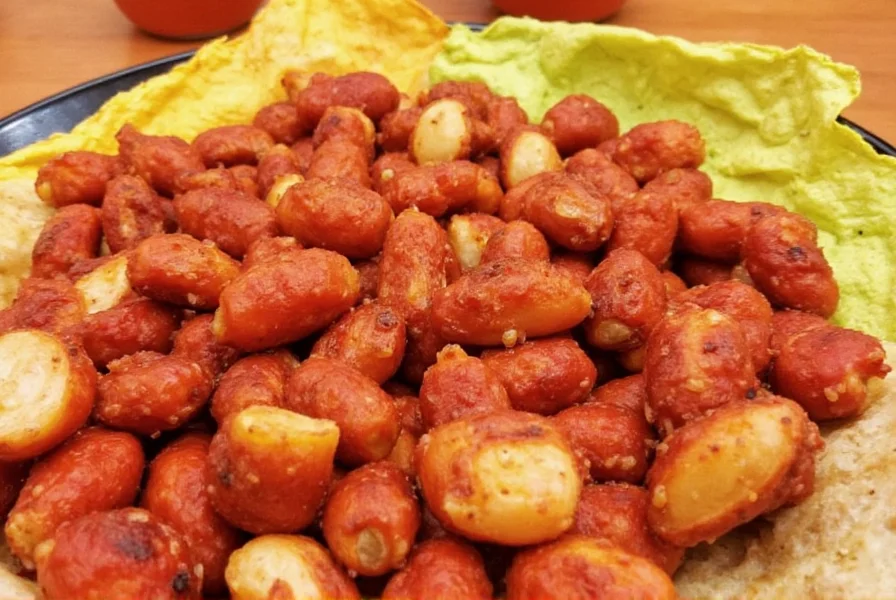
Ready to try it? Grab a handful of pasilla suiza next time you're at the store and let your taste buds travel south of the border. Who knows — it might just become your new secret ingredient!

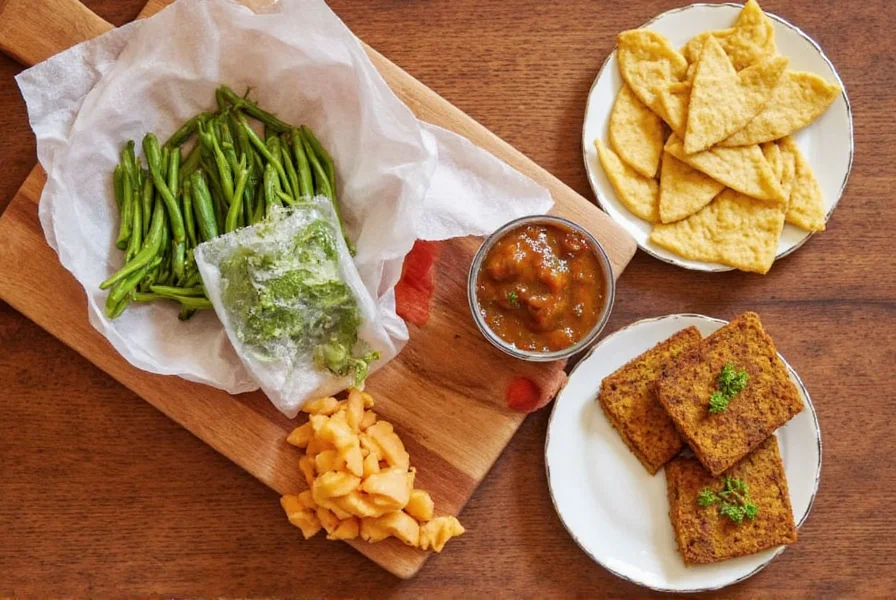









 浙公网安备
33010002000092号
浙公网安备
33010002000092号 浙B2-20120091-4
浙B2-20120091-4